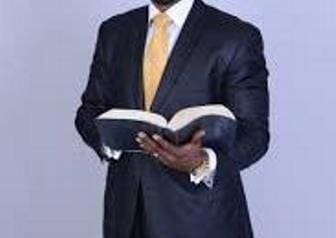Let me begin by sounding caution to so-called men of God, turned charlatans. They feed the innocent with poison.
They should stop noisy noises claiming they averted death. Be known to them, no one can swerve death. It’s an inevitable process.
Death is the one certainty that binds all living beings. It is not a threat to be feared, nor a punishment to be avoided, it is the final rite of passage, the inevitable conclusion to every life’s journey. The phrase “no one can swerve death” captures this truth with solemn clarity. It is not merely a statement about biology or fate; it is a philosophical and moral anchor, a call to live with purpose, humility, and readiness. In a world often distracted by ambition and illusion, this phrase reorients us toward what truly matters: how we live, what we leave behind, and whether our legacy will outlast our breath.
Across cultures and centuries, the inevitability of death has been a source of wisdom rather than despair. In Stoic philosophy, the concept of Memento Mori,“remember you must die”, was not designed to induce fear, but to sharpen focus. Marcus Aurelius, the Roman emperor and philosopher, urged his readers to live each day as if it were their last, not in panic, but in dignity. Death, in this view, is not the enemy of life, it is its clarifier. It strips away vanity, urgency, and ego, leaving only the question: what will you do with the time you have?
This reflection finds resonance in sacred texts as well. Ecclesiastes declares, “There is a time to be born and a time to die,” framing mortality not as a curse, but as a rhythm. Life is not a race to escape death, but a dance within its boundaries. The awareness of death invites us to live wisely, to cherish relationships, and to pursue justice with urgency. It reminds us that time is not infinite, and therefore, our choices must be intentional.
In military life, the proximity to death is not abstract, it is lived. Soldiers do not merely contemplate mortality; they walk beside it. In wartime, death is a daily companion, shaping discipline, devotion, and courage. Yet it is precisely this closeness that deepens the value of service. The soldier understands that honor is not found in avoiding death, but in facing it with integrity. Legacy becomes sacred when framed by mortality. The phrase “no one can swerve death” thus becomes a daily meditation, a grounding truth that informs every act of leadership and sacrifice.
Beyond its literal meaning, the phrase carries figurative weight. It speaks to the inevitability of consequence. Just as death cannot be dodged, neither can truth, justice, or reform. In leadership, betrayal, or institutional failure, reckoning eventually arrives. Systems that resist change, individuals who evade accountability, and cultures that bury injustice will all face their own form of demise. In this light, “no institution can swerve reckoning” becomes a poetic indictment. It is not merely about death, but about moral consequences. It calls for ethical renewal, for the courage to confront what has been ignored.
This truth is especially poignant in times of tragedy. When lives are lost, when injustice is exposed, when reform is demanded, the phrase “no one can swerve death” becomes a mirror. It reflects not only the fragility of life, but the urgency of action. It reminds us that grief must be met with gratitude, that loss must inspire legacy, and that silence must give way to truth. In the face of death, we are invited not to flinch, but to rise, to honor those who came before by living more fully, more ethically, and more courageously.
Ultimately, “no one can swerve death” is not a statement of despair, it is a declaration of dignity. It urges us to live as if our story will be told, to lead as if our example will endure, and to serve as if our time were short but our impact infinite. It is a phrase that belongs not only in philosophical texts, but in ceremonial scripts, recognition rituals, and daily reflections. It is the quiet companion of the wise, the whisper behind the reformer’s resolve, and the heartbeat beneath every act of humility and courage.
To accept death is to embrace life fully. To know its certainty is to live with urgency, grace, and conviction. And to lead with that awareness is to ensure that what we build will outlast what we bury. In the end, death is not the end, it is the measure. And legacy is not what we take, it is what we leave.
Source: newsghana.com.gh











